In the News
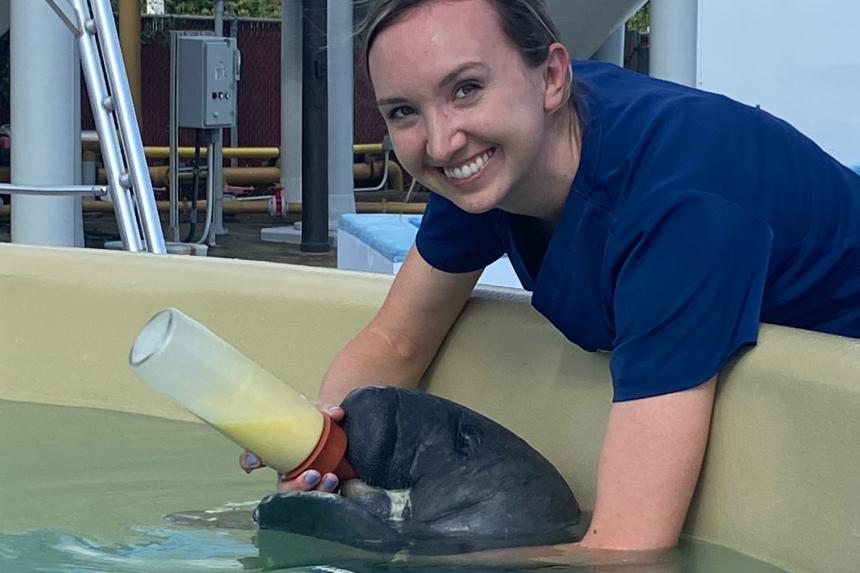
News
June 29, 2023
Cornell alumna Tatiana Weisbrod, DVM ‘17, once thought medical school was in her future, until she came across the Cornell AQUAVET® program, which changed the trajectory of her career.
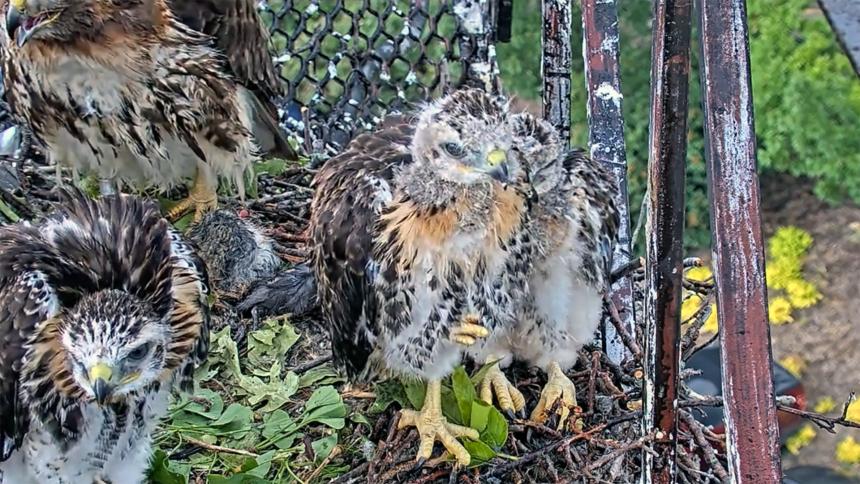
June 27, 2023
Three nestlings from the Cornell hawks' nest were treated for maggots in their ears at the Janet L. Swanson Wildlife Hospital and were then placed back safely in their nest.
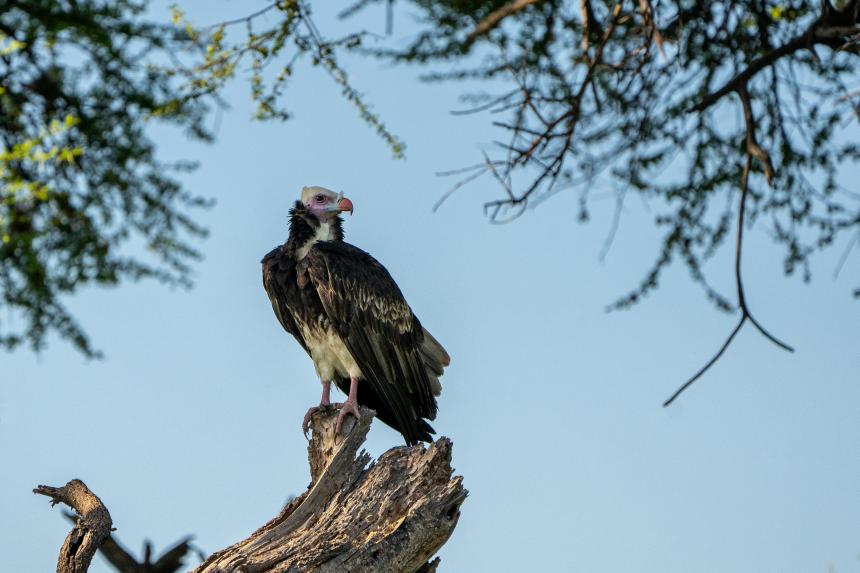
Blog
June 23, 2023
With the help of Dr. Martin Gilbert, Cornell veterinary student Christel-Remy Kuck, DVM '24, lends a hand to struggling vulture populations at VulPro, South Africa through Cornell University College of Veterinary Medicine's Expanding Horizons International Education Program.
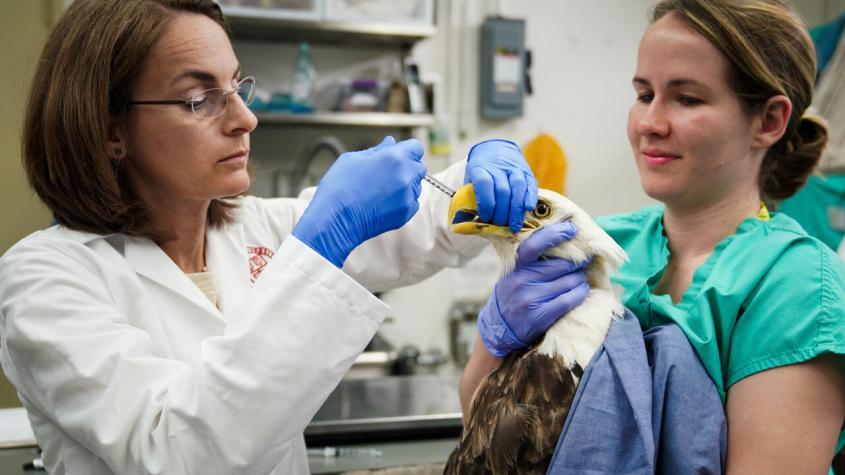
June 09, 2023
A bald eagle had been hit by a car the night before arriving at the Janet L. Swanson Wildlife Hospital and was not doing well. A month later, however, she was ready to be discharged and transferred to a licensed wildlife rehabilitator.
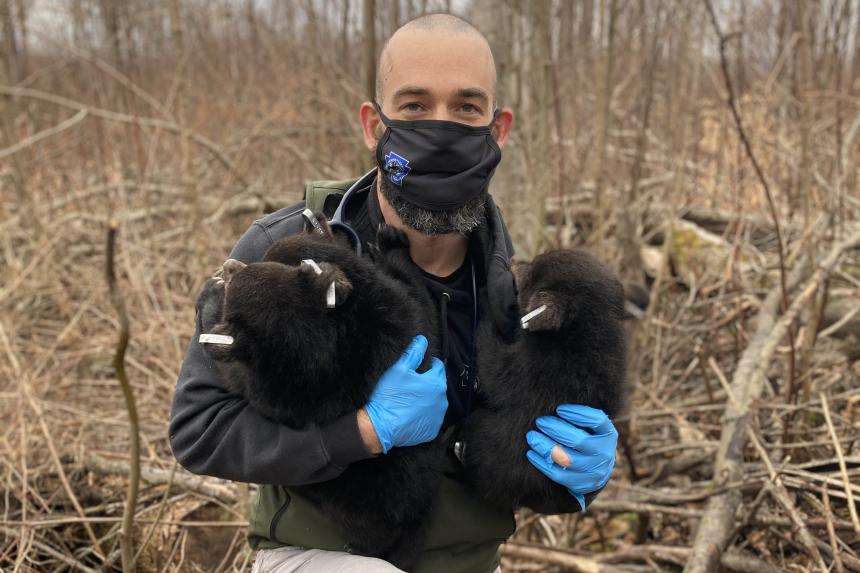
News
February 08, 2023
Dr. Andrew Di Salvo had always been interested in wildlife and enjoyed being outdoors. He first considered a career in wildlife veterinary medicine while working as a park ranger in New York City before veterinary school....
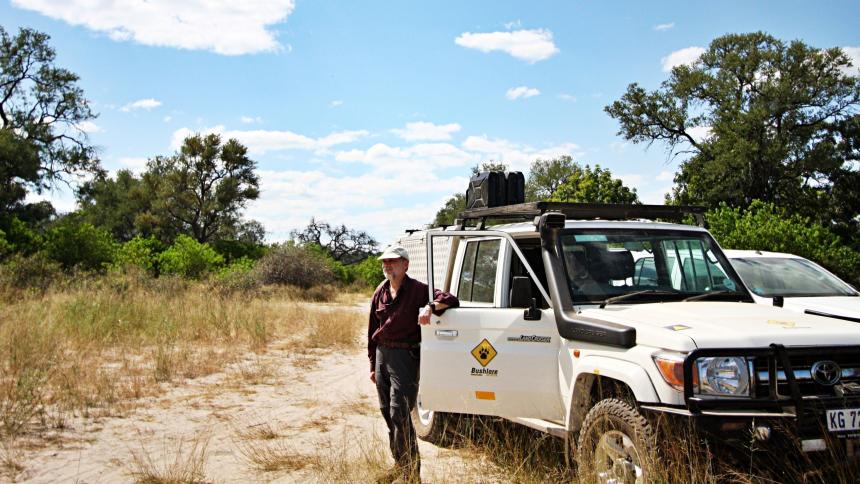
January 18, 2023
From Ithaca to the plains of southern Africa, the Cornell Wildlife Health Center is working to heal the natural world. Launched in 2020, the center was formed to unite Cornell’s leading wildlife health professionals under a common mission: to repair the fractured relationship between people and nature.
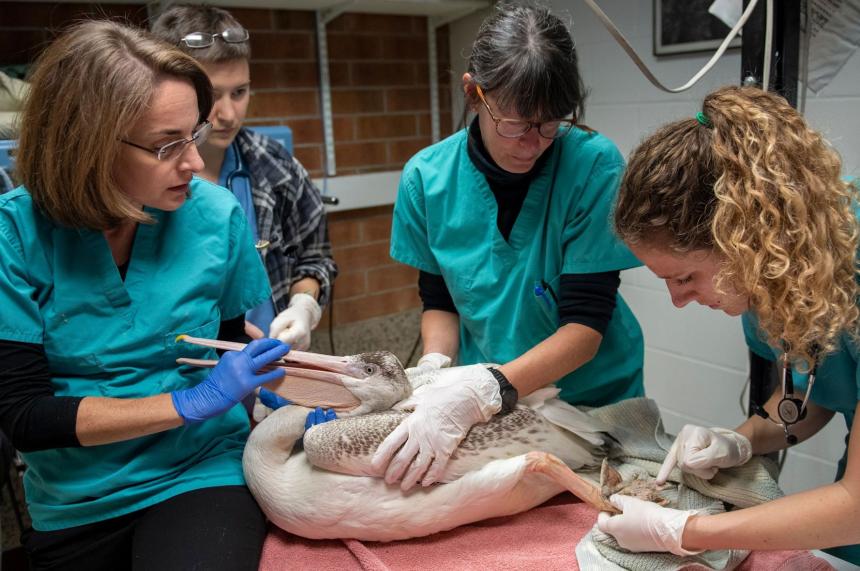
January 16, 2023
The Cornell Wildlife Health Center has launched a new Student Support Fund for off-campus apprenticeships with free-ranging or captive wildlife, on-campus wildlife research, and student travel to present at professional conferences on wildlife health and conservation.
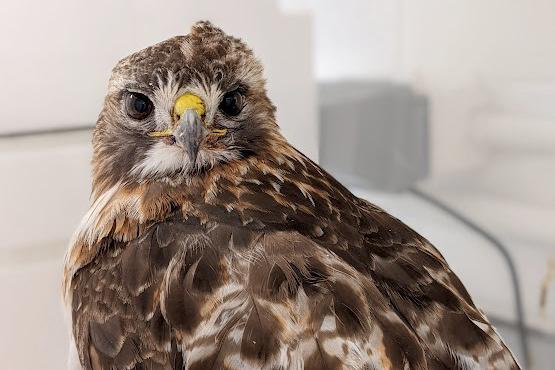
July 12, 2022
Birds of prey are in trouble, according to a recent study by Cornell researchers. Rodenticides are bad news for wildlife; poisoned rodents may not die immediately and are more likely to be eaten by raptors like red-tailed hawks, passing on the poison to them.

June 27, 2022
West Nile virus may no longer be a death sentence to crows. In a new study from the College of Veterinary Medicine, wildlife experts describe successfully treating and releasing five American crows infected with the deadly disease, These are the first known crows to survive West Nile virus.
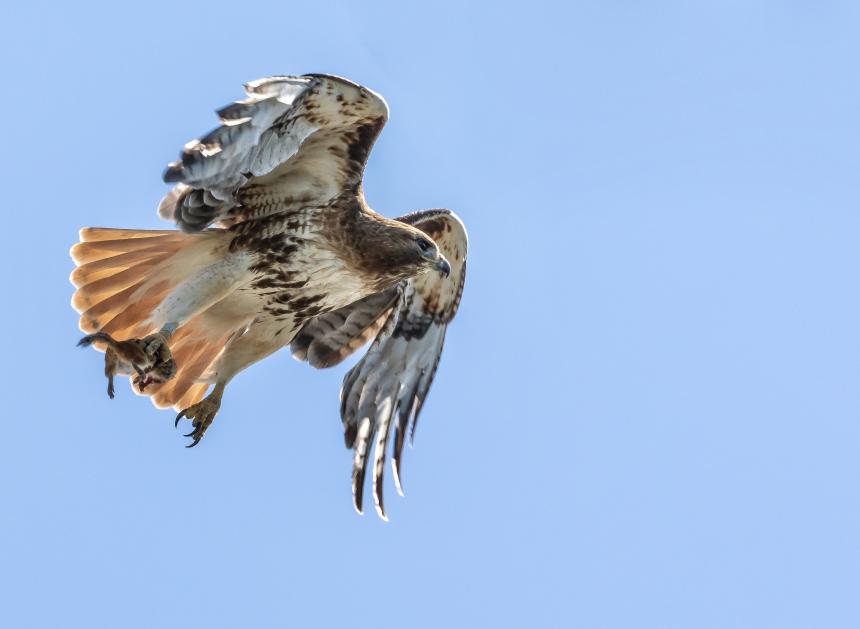
For Your Information
June 17, 2022
Anticoagulant rodenticides continue to be used across the U.S. as a method for controlling pest rodent species. As a consequence, wild birds of prey are exposed to these toxicants by eating poisoned prey items.
